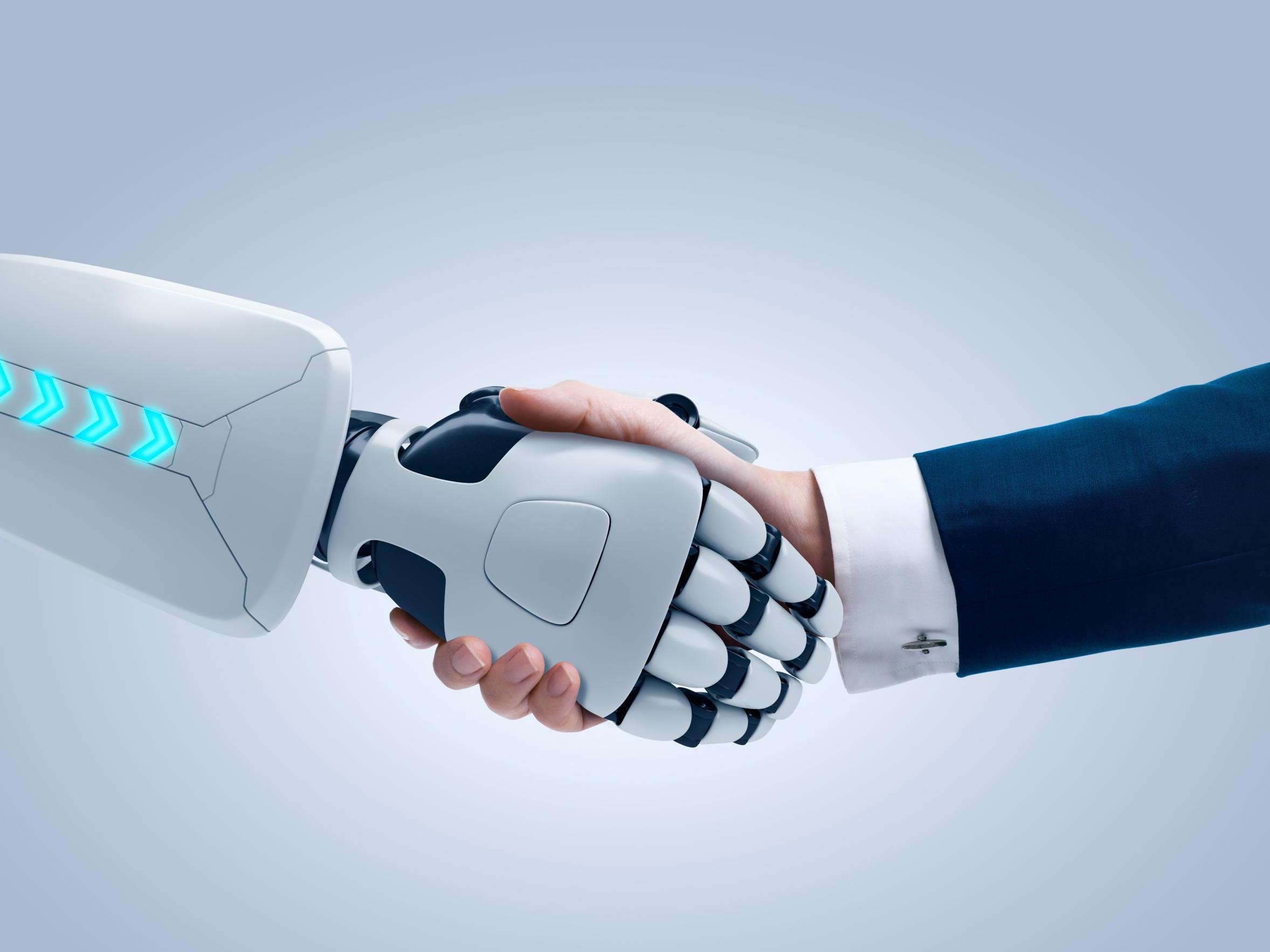Could robot recruiters finally end workplace discrimination for good?
Of course it’s up to us to educate ourselves about bias and how it affects our decision-making. But until we do, why not let technology lead the way?


Your support helps us to tell the story
From reproductive rights to climate change to Big Tech, The Independent is on the ground when the story is developing. Whether it's investigating the financials of Elon Musk's pro-Trump PAC or producing our latest documentary, 'The A Word', which shines a light on the American women fighting for reproductive rights, we know how important it is to parse out the facts from the messaging.
At such a critical moment in US history, we need reporters on the ground. Your donation allows us to keep sending journalists to speak to both sides of the story.
The Independent is trusted by Americans across the entire political spectrum. And unlike many other quality news outlets, we choose not to lock Americans out of our reporting and analysis with paywalls. We believe quality journalism should be available to everyone, paid for by those who can afford it.
Your support makes all the difference.Like many people, I recognise the benefits that automation has brought to certain areas of society but I still recoil at the idea of robots replacing key workers. I don’t trust robo-doctors and police bots make me uneasy. I also worry about the threat that assistance robots can pose to human life when they malfunction. But would I be comfortable with a robot interviewing me for a job? Absolutely.
In fact, I’d like to see robots interviewing candidates in every office and recruitment agency in Britain. Why? Because robots that have been designed specifically for recruitment purposes are generally much better than humans at making unbiased decisions about a candidate. The results of an experiment in Sweden, where robot recruiters have been used to conduct interviews, proves this to be true.
Tengai, a robot developed by Furhat Robotics, has been carrying out simulated job interviews since last October as part of a collaboration with Stockholm-based recruitment firm, TNG.
Tengai is a disembodied robotic head with an innocent-looking face projected on to it. The machine can mimic human speech and mannerisms, and is designed to look friendly and approachable. It doesn’t do small talk, which ensures it only records responses that are work-related. It asks the same questions in the same order, with no variation in its tone of voice throughout. Perhaps most importantly, Tengai neither knows or cares about a candidate’s race, gender, religion, appearance or any other potentially influencing factors. Once it has carried out its duties, human recruiters or managers are then given text transcripts of each interview.
Now that Tengai has passed its probation period, it will soon be used to conduct real job interviews in Sweden. As with other examples of artificial intelligence, there’s always the danger that a machine can inherit human biases. But Tengai has been tested with a diverse set of interviewers, which minimised the chances of this occurring, according to BBC News.
Sweden has shown it’s willing to tackle recruitment bias head-on. Now it’s Britain’s turn. Evidence shows that the issue is rife across the UK and not nearly enough is being done to address it. Many companies have looked to unconscious bias training as a possible solution. However, multiple studies suggest the training is ineffective and in some cases, could actually increase biased decision-making. In a nutshell, if recruiters believe the training procedures are being used to tell them how to feel or what to believe, they are more likely to rebel against them.
With this in mind, the Tegai experiment should be extended to the UK and if the results are positive, recruiters should ensure the machines are a permanent fixture in offices. Companies need to use every tool at their disposal if they are serious about tackling bias. Some will claim they cannot afford to purchase robots, but given that organisations with less racial diversity are statistically less likely to achieve above-average financial returns, how can they afford not to?
Robot recruiters have their limitations, of course. Despite Tengai’s promising results, it was designed specifically for job interviews but research shows bias often occurs before applicants reach that stage. As a Runnymede Trust report states: “Despite various policy initiatives by governments over the years, bias and discrimination affect people at work from recruitment to progression: at the CV stage, during interview and once in the role.” So a tech-based solution that is only focused on interviews will be ineffective unless accompanied by similar measures that can be applied to other parts of the recruitment process.
It would also be foolish to pretend that we can rely on technology alone to solve the problems in recruitment without addressing both the implicit and explicit biases that are prevalent in wider society. It’s up to humans to educate themselves about bias and how it affects their decision-making.
Awareness is increasing, since unconscious bias is now one of the most discussed recruitment-related topics, but there’s still a long way to go. Until humans learn to make unbiased, objective recruitment decisions, we have no choice but to let the robots show us how it’s done.
Join our commenting forum
Join thought-provoking conversations, follow other Independent readers and see their replies
Comments